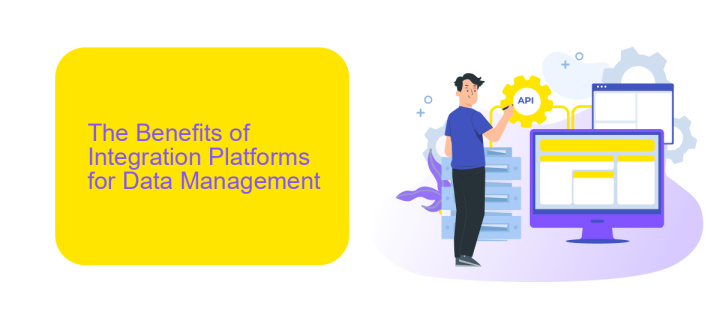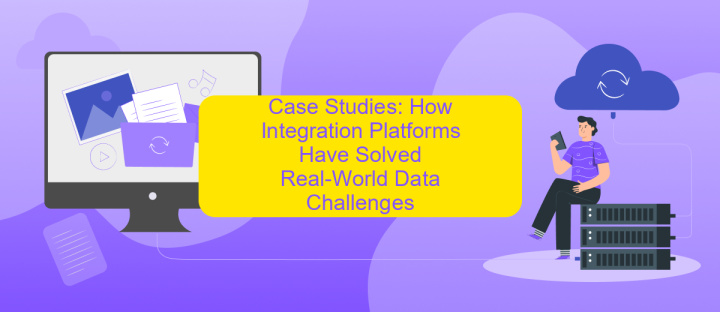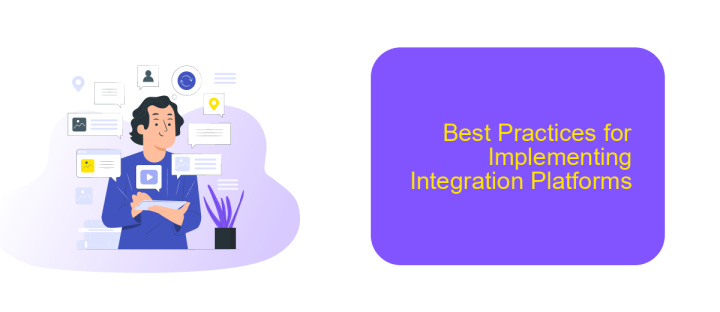Harnessing Integration Platforms to Unscramble the Data Mess
In today's data-driven world, organizations are overwhelmed by the sheer volume and complexity of their data. Harnessing integration platforms has become essential for unscrambling this data mess, enabling seamless data flow and enhanced decision-making. This article explores how leveraging these platforms can streamline operations, improve data accuracy, and drive business growth by transforming chaotic data landscapes into coherent, actionable insights.
Integration Platforms: A Powerful Tool for Data Integration
Integration platforms have become indispensable tools for modern businesses striving to manage and streamline their data efficiently. By providing a unified interface for connecting disparate systems, these platforms enable seamless data flow across various applications, thereby eliminating data silos and enhancing operational efficiency.
- Centralized Data Management: Integration platforms consolidate data from multiple sources into a single, accessible location.
- Real-time Data Sync: They ensure that data is updated in real-time across all connected systems, reducing inconsistencies.
- Scalability: These platforms can easily scale with growing business needs, accommodating more data sources and higher volumes of data.
- Cost Efficiency: By automating data integration processes, businesses can save on manual labor and reduce operational costs.
One such powerful tool is ApiX-Drive, which simplifies the integration process by offering a user-friendly interface and pre-built connectors for various applications. With ApiX-Drive, businesses can effortlessly set up integrations without the need for extensive technical expertise, allowing them to focus on leveraging their data for strategic decision-making. As a result, integration platforms like ApiX-Drive are crucial for navigating the complexities of modern data landscapes.
The Benefits of Integration Platforms for Data Management

Integration platforms offer a multitude of benefits for data management, streamlining the process of combining data from various sources into a cohesive and manageable system. By leveraging these platforms, organizations can eliminate data silos, ensuring that information flows seamlessly across departments and applications. This not only enhances data accuracy and consistency but also improves decision-making by providing a unified view of the organization's data landscape.
One notable example is ApiX-Drive, a service that simplifies the setup of integrations between different applications and systems. With its user-friendly interface and robust features, ApiX-Drive allows businesses to automate data transfers and synchronize information effortlessly. This reduces the manual workload and minimizes the risk of errors, leading to more efficient operations. Additionally, the platform's scalability ensures that it can grow alongside the organization, adapting to increasing data management needs without compromising performance.
Case Studies: How Integration Platforms Have Solved Real-World Data Challenges

Integration platforms have become essential tools for organizations aiming to streamline their data processes. By automating data flows and reducing manual intervention, these platforms have significantly improved efficiency and accuracy. Let's look at some real-world examples where integration platforms have successfully addressed complex data challenges.
- Retail Sector: A large retail chain utilized ApiX-Drive to integrate their online and offline sales data. This integration enabled them to achieve a unified view of customer behavior, leading to more personalized marketing campaigns and improved inventory management.
- Healthcare Industry: A hospital network implemented an integration platform to synchronize patient records across multiple systems. This ensured that medical professionals had real-time access to accurate patient data, enhancing the quality of care and reducing administrative overhead.
- Financial Services: A financial institution leveraged an integration platform to consolidate data from various financial applications. This not only streamlined their reporting processes but also improved regulatory compliance by ensuring data consistency and accuracy.
These case studies highlight the transformative impact of integration platforms like ApiX-Drive in solving real-world data challenges. By automating data workflows and ensuring seamless connectivity, these platforms enable organizations to focus on their core operations while maintaining data integrity and accuracy.
Best Practices for Implementing Integration Platforms

Implementing an integration platform effectively requires a strategic approach to ensure seamless data flow and operational efficiency. Begin by clearly defining your integration goals and identifying the specific systems and data sources that need to be connected. This foundational step sets the stage for a coherent and manageable integration process.
Next, choose an integration platform that aligns with your business needs. For instance, ApiX-Drive offers a user-friendly interface and robust capabilities for connecting various applications without requiring extensive coding knowledge. Such platforms can significantly reduce the complexity and time required for integration projects.
- Establish clear data governance policies to maintain data quality and consistency.
- Ensure scalability to accommodate future growth and additional integrations.
- Regularly monitor and optimize integrations to identify and resolve any issues promptly.
- Provide adequate training and support to your team to maximize the platform's benefits.
By following these best practices, organizations can leverage integration platforms like ApiX-Drive to streamline their data processes, enhance productivity, and achieve better business outcomes. Consistent evaluation and adaptation of your integration strategy will ensure long-term success and flexibility in an ever-evolving technological landscape.


The Future of Integration Platforms in the Era of Big Data
As we venture deeper into the era of Big Data, the role of integration platforms becomes increasingly pivotal. These platforms are not just tools for connecting disparate systems; they are the backbone of data coherence and accessibility. With the exponential growth of data, businesses face the challenge of ensuring seamless data flow across various applications and services. Integration platforms, such as ApiX-Drive, are stepping up to this challenge by offering automated workflows and real-time data synchronization, enabling organizations to harness the full potential of their data assets.
Looking ahead, the future of integration platforms lies in their ability to leverage advanced technologies like artificial intelligence and machine learning. These innovations will enhance predictive analytics and decision-making processes, providing deeper insights and fostering innovation. Additionally, the scalability and flexibility of platforms like ApiX-Drive will be crucial in adapting to the ever-evolving data landscape. As businesses continue to generate massive amounts of data, integration platforms will remain essential in transforming raw data into actionable intelligence, driving growth and efficiency.
FAQ
How does an integration platform help in managing data from multiple sources?
What types of data can be integrated using these platforms?
How can integration platforms improve business efficiency?
What are the key features to look for in an integration platform?
Can small businesses benefit from using integration platforms?
Apix-Drive is a simple and efficient system connector that will help you automate routine tasks and optimize business processes. You can save time and money, direct these resources to more important purposes. Test ApiX-Drive and make sure that this tool will relieve your employees and after 5 minutes of settings your business will start working faster.

